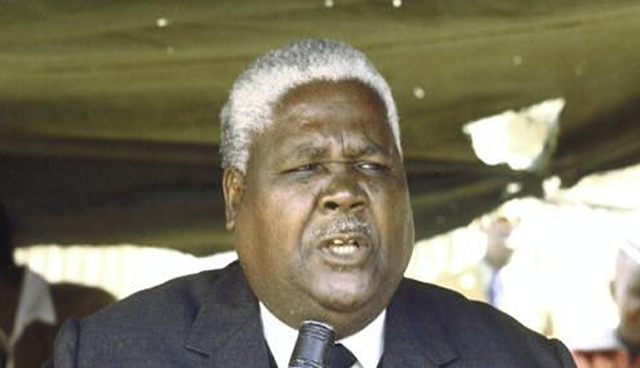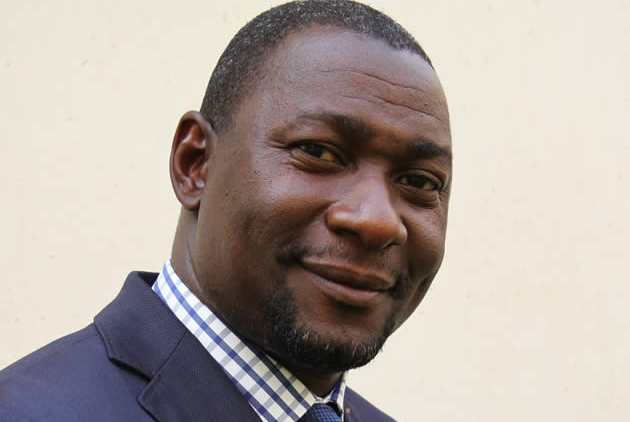Editorial Comment: Evoke Nkomo’s spirit of nation building

Zimbabweans today commemorate the death of a liberation war icon and one of the country’s founding fathers. Seventeen years after his death, Zimbabweans have not forgotten the invaluable contributions the late Vice President Dr Joshua Mqabuko Nkomo, who was affectionately known as Father Zimbabwe, made.
He was a visionary, a father, a unifier, a liberator, a leader, a crusader of black economic empowerment and the accolades are endless.
Without him, many successful businesspeople today would have been nothing and this, therefore, calls for all Zimbabweans to accord him the recognition he rightly deserves.
He was a principled trade unionist and those wishing to climb the political ladder through unionism should learn that humility and respect for the people of varying political affiliation is critical. Dr Nkomo was born on June 19, 1917, to Thomas Nyongolo Letswana Nkomo in the then Semukwe Reserve in Matabeleland South, but he spent most of his life working for the total empowerment of majority black Zimbabweans.
A crusader of black economic empowerment, VP Nkomo wanted all Zimbabweans to be given land and his dream was to see blacks being successful farmers, better than the former colonisers — white former farmers. He used to say if you want money, just turn the word (mari to rima) and Zimbabweans would be rich.
Surely, as Zimbabweans celebrate his life today, the thrust should be to maximise land use and boost productivity on farms.
With his wise leadership together with President Mugabe, Zimbabweans are the most empowered people in Africa and the world at large — proud owners of their birthright — land. Zimbabweans are proud owners of rich, fertile and arable land that was held just by a handful whites, totalling 4 000.
We implore Zimbabweans today to honour the late iconic leader by working hard on farms so that his dream, his legacy, lives on.
People who are fanning divisions and factionalism in Zanu-PF today should at least introspect and heed the late Father Zimbabwe who was a unifier. As Zimbabweans celebrate his life today, we implore all warring parties in Zanu-PF and even in opposition parties to turn their swords into ploughshares and build this country.
This is the only way Zimbabweans can help each other, come up with solutions to economic challenges that have been inflicted on us a people by the West, led by Britain. However, with the way Zimbabweans are destroying the country through needless factional fights and corruption, Father Zimbabwe must be turning in his grave.
Zimbabweans should take the celebrations slated for Bulawayo to appease the late liberation icon by loving one another, fight corruption and move forward with the empowerment agenda.
In 1952, Dr Nkomo became leader of the African National Congress of Rhodesia.
The party was soon banned, but that did not extinguish his nationalism and that of his peers as in 1960, at the formation of the National Democratic Party (NDP), he was elected its president.
After it was banned Dr Nkomo and his colleagues were back at it in 1962, when they formed the Zimbabwe African People’s Union (Zapu) which was again banned a few months later.
On April 16, 1964, Dr Nkomo was arrested, detained and spent 10 years at the notorious Gonakudzingwa sharing space with the likes of Joseph Msika, Josiah Chinamano and Sikhanyiso Ndlovu. He was released in 1974, but Dr Nkomo left the country to lead the armed liberation war from Zambia through the Zimbabwe People’s Revolutionary Army (Zipra).
His party, Zapu, contested the first democratic elections in 1980, lost and decided to be part of the first multi-racial Government where he served as Minister of Home Affairs.
On December 22, 1987, he as Zapu leader and President Mugabe as Zanu leader, signed the historic Unity Accord that ended civil disturbances in Matabeleland and parts of the Midlands and took up the post of Vice President until July 1, 1999 he lost his battle against cancer.
He was selflessness personified and Zimbabweans should go back to this founding ethos of the liberation struggle.









Comments